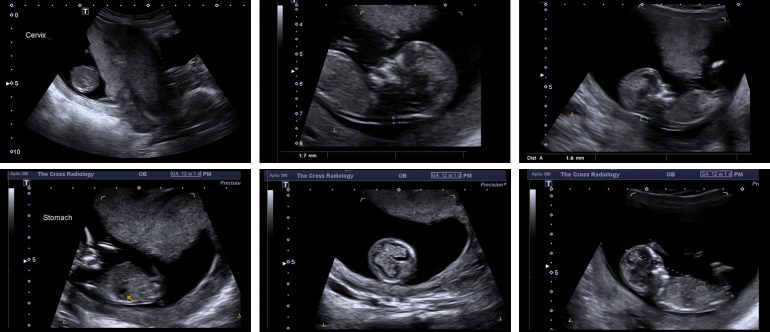Ultrasound
An ultrasound is a medical imaging procedure using high frequency sound to create pictures to look at soft tissue in your body.
You will be shown into the ultrasound room and asked to either lie down on a couch or sit on a chair. A warmed clear gel like substance is then applied on your skin on to the area of interest. The sound waves don’t travel through air so this allows transmission of the sound waves into your body. A hand-held probe produces sound waves that will form the images. You will be completely unaware of these sound waves and there should be no discomfort during the examination apart from a little pressure.
Ultrasound is generally a painless procedure. Unlike X-rays, it does not have radiation. A sonographer will perform the examination.
General Ultrasound
Abdominal & Pelvic
Gynaecologic
Musculoskeletal
Small Parts
Vascular Studies (Arterial & Venous)
Paediatric
Obstetric Ultrasound
1st Trimester Dating
Nuchal Translucency
Early Anatomy
2nd Trimester Morphology
3rd Trimester Growth
Preparation
Depending on the type of examination you are having you will be given instructions on how to prepare for your scan. For some scans you will be asked to change into a gown.
Other examinations you may need a full bladder, or you may need to fast. The procedure time will vary depending on the type of exam and the level of your preparation. Most exams will take around 30 minutes. Some will take 45-60 minutes.
Our experienced radiologist looks at the images and sends the results to your treating doctor. You need to discuss the results with your treating doctor.
Obstetric Ultrasound
An obstetric ultrasound is an ultrasound that is childbirth-related. Ultrasound is excellent at detailing unborn babies and can be performed at most stages of the pregnancy.

01. 1st Trimester Dating Scan
A first-trimester dating scan (usually performed 7-10 weeks of the pregnancy) confirms how many weeks pregnant the woman is and, therefore, the due date of the baby.
02. Nuchal Translucency Scan
A Nuchal Translucency ultrasound (performed at The Cross Radiology between 12.5-13.5 weeks) along with a blood test, can be used as a screening test for Down syndrome, but it is not a conclusive test for this chromosome disorder.
03. 2nd Trimester Morphology
A second-trimester scan (usually between weeks 19 and 21) checks for structural abnormalities, particularly in the baby's head or spine. The sex of the baby may also be determined at this stage.
04. 3rd Trimester Growth
Not all women will be asked to have a 3rd trimester ultrasound. You doctor or midwife my recommend this for your individual needs. During this scan, we check your baby’s growth, assess placental position, review findings from a prior ultrasound, assess your cervical length and any other specific requirements by your doctor.



